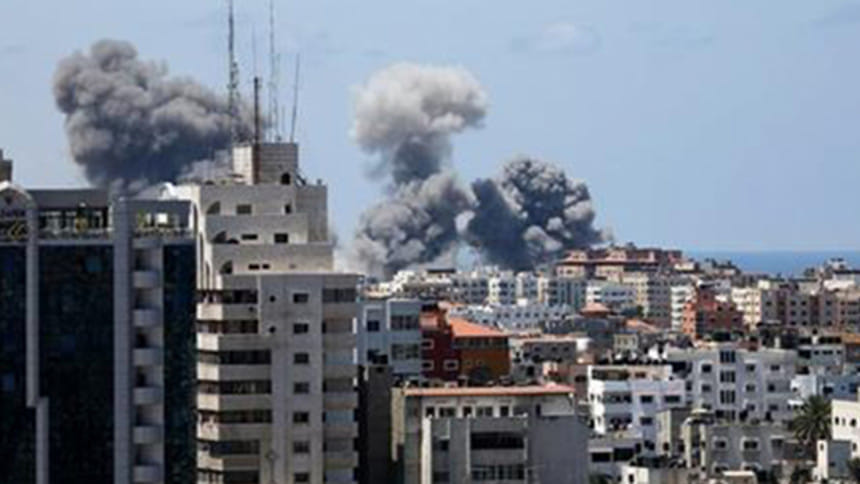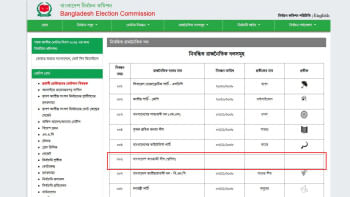UN finds evidence of war crimes by Israel, Hamas

A United Nations investigation has found “serious violations of international humanitarian law” that “may amount to war crimes” by both Israel and Palestinian militants in the Gaza Strip during their bloody battle last summer, reports The New York Times.
A report released on Monday in Geneva by a commission of the United Nations Human Rights Council said “impunity prevails across the board” regarding the actions of Israeli forces in Gaza, and called on Israel to “break with its recent lamentable track record in holding wrongdoers accountable.”
As for Palestinian armed groups, the commission cited the “inherently indiscriminate nature” of rockets and mortars fired at Israeli civilians, condemned the execution of suspected collaborators, and said the Palestinian authorities “have consistently failed” to bring violators of international law to justice.
“Comprehensive and effective accountability mechanisms for violations allegedly committed by Israel or Palestinian actors will be a key deciding factor of whether Palestinians or Israelis are to be spared yet another round of hostilities and spikes in violations of international law,” the report said.
It condemns Israel’s restrictions on Gaza residents’ travel and trade, saying “the blockade and the military operation have led to a protection crisis and chronic, widespread and systematic violations of human rights.”
The commission says “the scale of the devastation was unprecedented” in Gaza, where it counts 2,251 Palestinian deaths and 18,000 homes destroyed, and also cites “immense distress and disruption to the lives of Israeli civilians,” along with $25 million in civilian property damage.
“Palestinian and Israeli children were savagely affected by the events,” the report said in a distinct effort at even-handedness. “Children on both sides suffered from bed-wetting, shaking at night, clinging to parents, nightmares and increased levels of aggressiveness.”
The Israeli government refused to cooperate with the Human Rights Council inquiry, saying it was inherently biased.
The criticism was initially focused on the original chairman of the panel, William Schabas, a Canadian law professor who resigned in February after a formal complaint by Israel about, among other things, his having worked as a consultant for the Palestine Liberation Organization.
Israeli officials have since pointed to what they see as prejudgments in the commission’s founding resolution, which “condemns in the strongest terms the widespread, systematic and gross violations of international human rights and fundamental freedoms” involved in the “Israeli military assault” on Gaza, saying it “involved disproportionate and indiscriminate attacks.”
The highly anticipated report is expected to serve as a road map for the inquiry into possible war crimes already underway by the prosecutor of the International Criminal Court.
Israel last week published an extensive report arguing that its soldiers and commanders adhered to all international laws, and placing the bulk of the blame for Palestinian civilian deaths on Hamas.
Mary McGowan Davis, a former justice of the New York State Supreme Court, replaced Schabas as head of the inquiry. She postponed the report’s release from March, citing a “need to adjust our work” in light of his resignation, and to “weigh with the utmost objectivity” the large amount of materials submitted to the panel, which conducted interviews in Jordan but was not allowed by Israel to enter Gaza for research.
McGowan Davis has also faced scrutiny after being one of the writers of a 2011 report on how Israel handled allegations of operational misconduct during Operation Cast Lead against Gaza in 2008-9. That report found that Israel had investigated hundreds of allegations but that it had taken little disciplinary action and that it never looked into those responsible for planning and managing the operation.
Many Israeli officials and news organizations continued to refer to “the Schabas commission” and “the Schabas report.” Emmanuel Nahshon, a spokesman for the Foreign Ministry, said on Monday that Israel had taken that approach because “we believe that by calling it the Schabas report it positions it the way we want it to be positioned,” and “this reflects the spirit of the whole commission and the mandate.”
Prof Amichai Cohen, an international law expert at the Israel Democracy Institute, submitted an opinion to the commission, not about the substance of the military’s operations but about its ability to investigate itself, a critical issue that could prevent the international court from taking up cases.
Citing recent overhauls, Professor Cohen argued that the United Nations’ “intervention” is “not justified and undermines the basis of the international demand to establish investigative mechanisms and adopt international law in the Israeli legal system.”

 For all latest news, follow The Daily Star's Google News channel.
For all latest news, follow The Daily Star's Google News channel. 



Comments